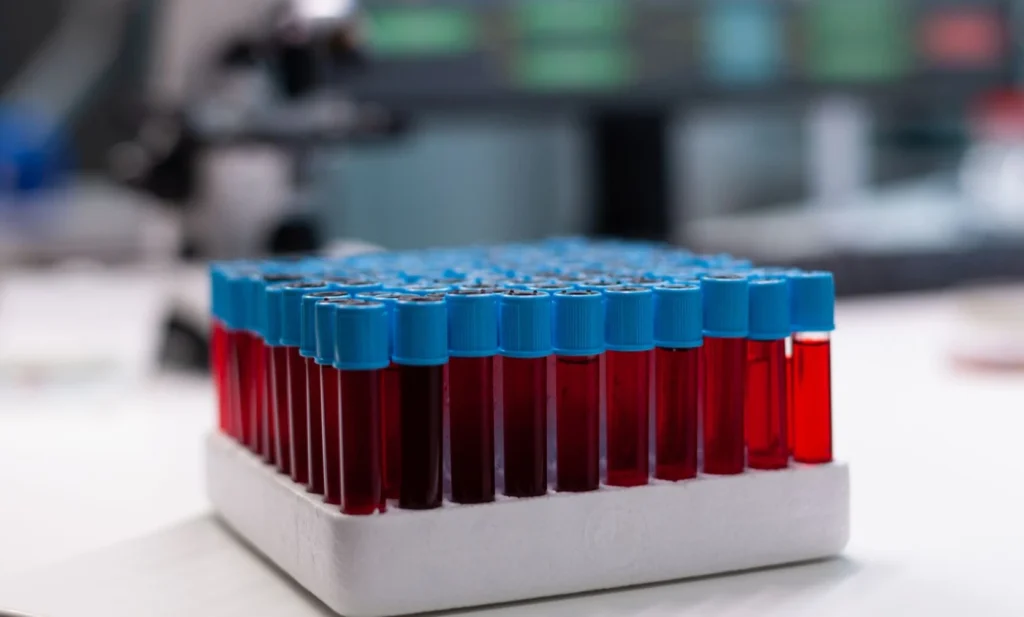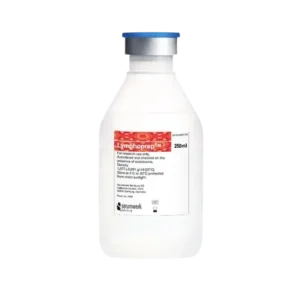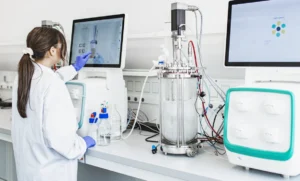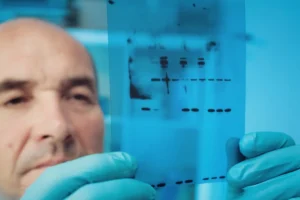Cell separation is a cornerstone of many research and clinical workflows, enabling scientists to isolate specific populations for downstream analysis or culture. One of the most reliable and widely used techniques for achieving this is density gradient centrifugation. At the heart of this process is density gradient media — specialized solutions that exploit differences in cell density to separate target cells from other components.
STEMCELL Technologies produces high-quality density gradient media optimized for the isolation of viable, functional cells from complex biological samples. These reagents are essential for applications in immunology, hematology, oncology, and regenerative medicine.
In South Africa, laboratories can access a select range of these products through Apex Scientific, including Lymphoprep™, a trusted medium for the isolation of mononuclear cells. While Lymphoprep™ is our featured product here, the complete STEMCELL Technologies density gradient media portfolio is available upon request.
Why Density Gradient Media Matters
Density gradient centrifugation separates cells based on buoyant density, allowing researchers to obtain highly purified cell populations with minimal contamination. This is especially important for downstream applications that require functional, viable cells, such as:
- Flow cytometry
- Functional assays (e.g., cytotoxicity testing, proliferation studies)
- Cell culture and expansion
- Molecular analysis of sorted cell populations
Without high-quality density gradient media, these processes may yield lower recovery rates, reduced purity, or compromised cell functionality.
Advantages of STEMCELL Technologies Density Gradient Media
- Proven Performance
Products like Lymphoprep™ are widely published and validated for consistent cell separation results across different sample types. - High Purity and Viability
Optimized density ensures efficient separation of viable mononuclear cells from unwanted populations like granulocytes, erythrocytes, and debris. - Low Endotoxin and Contaminant Levels
Manufactured under strict quality control to minimize the risk of introducing confounding variables in sensitive assays. - Compatibility with Multiple Protocols
Suitable for both manual and automated cell separation workflows, making them versatile for research and clinical applications.
Featured Product: Lymphoprep™
Lymphoprep™ is a sterile, ready-to-use density gradient medium designed for the isolation of mononuclear cells from human peripheral blood, cord blood, and bone marrow. Its density (1.077 g/mL) has been optimized for separating lymphocytes and monocytes from other blood components using a simple centrifugation protocol.
Key Applications
- Preparation of peripheral blood mononuclear cells (PBMCs) for immunological assays.
- Isolation of mononuclear cells for cell culture and expansion.
- Sample preparation for flow cytometry, functional testing, or molecular profiling.
Benefits
- Consistent recovery of high-purity, viable mononuclear cells.
- Ready-to-use format eliminates preparation time.
- Manufactured under cGMP conditions for reproducibility and reliability.
How Density Gradient Media Works
Density gradient centrifugation uses a solution with a specific density to separate cells by buoyant density during centrifugation. When a biological sample such as blood is layered over the medium and centrifuged:
- Denser cells (e.g., granulocytes, erythrocytes) pass through the medium and pellet at the bottom.
- Less dense cells (e.g., lymphocytes, monocytes) remain at the interface between plasma and the medium.
- The mononuclear cell layer can then be carefully collected for downstream use.
This process is simple yet powerful, enabling researchers to achieve high recovery rates without expensive instrumentation.
Applications Across Research Fields
Immunology
Isolation of PBMCs is a routine first step for immune profiling, cytokine release assays, and T/B/NK cell functional studies.
Hematology
Used for analyzing hematopoietic cell populations in blood and bone marrow samples.
Oncology
Preparation of tumor-infiltrating lymphocytes (TILs) from blood samples for cancer immunotherapy research.
Translational Medicine
Enables cell isolation for use in cell therapy development, clinical trials, and diagnostic testing.
Best Practices for Using Density Gradient Media
- Sample Handling: Process samples promptly to maintain cell viability.
- Layering Technique: Avoid mixing the blood sample with the density medium to preserve the gradient.
- Centrifugation: Follow recommended speeds and times to ensure optimal separation.
- Harvesting Cells: Use gentle pipetting to avoid disturbing the cell layers.
By following these best practices, researchers can maximize both the yield and quality of their isolated cells.
The Broader STEMCELL Technologies Density Gradient Media Portfolio
In addition to Lymphoprep™, STEMCELL Technologies offers density gradient media formulations tailored to different applications and sample types, including:
- Media optimized for isolating specific immune cell subsets.
- Solutions for non-human primate or animal model samples.
- Variants with modified densities for specialized applications.
All products are manufactured with the same high-quality standards, ensuring reproducibility and reliability across experiments.
You can explore the complete selection here: STEMCELL Technologies Density Gradient Media.
Why Access to High-Quality Media Matters
For scientists working in immunology, cancer biology, or cell therapy development, the quality of the separation medium directly impacts experimental outcomes. Poor separation efficiency or contamination with unwanted cell types can compromise data quality, delay projects, and increase costs. Reliable, validated media like those from STEMCELL Technologies help ensure that every experiment begins with the best possible cell preparation.
Conclusion
Density gradient media are essential for isolating high-purity, functional cell populations for downstream analysis or culture. STEMCELL Technologies offers research-grade solutions, such as Lymphoprep™, that combine proven performance with consistent quality.
While this article highlights Lymphoprep™, remember that the full STEMCELL Technologies density gradient media portfolio is available upon request, giving researchers access to a complete suite of cell separation solutions.
Explore the complete range on the STEMCELL Technologies Density Gradient Media page or contact us to source the right product for your research.




